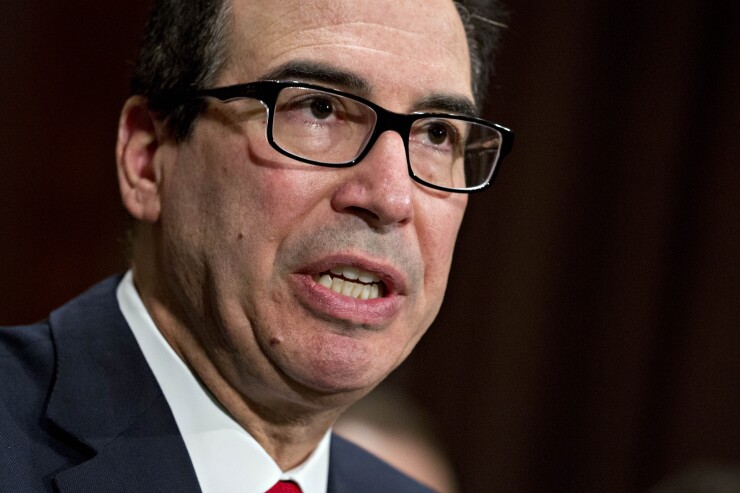Receiving Wide Coverage ...
Santander’s new boss
Banco Santander named Andrea Orcel, UBS’s investment banking head, as its CEO, “propelling one of Europe’s
“Mr. Orcel is joining a banking giant he helped to create,” the Wall Street Journal notes.
Orcel’s appointment “will be seen as an indication that the Spanish lender is
Going up
The Federal Reserve is likely to raise interest rates by 25 basis points following its monetary policy meeting Wednesday, the eighth increase since late 2015.
But increases in
Wall Street Journal
Choosing sides
Treasury Secretary Steven Mnuchin and Comptroller of the Currency Joseph Otting’s plan to overhaul the Community Reinvestment Act pits bankers against community activists. “Community groups agree the regulations need to be updated, but worry changes could mean lower-income borrowers would have

Meanwhile, Sen. Elizabeth Warren, D-Mass., has come up with her own plan to reform the CRA. She introduced a bill on Tuesday that would require a greater number of institutions, including credit unions, to adhere to CRA requirements and face
The other hearing on Capitol Hill
The House Financial Services Committee has invited Simone Grimes, who has accused Federal Housing Finance Agency Director Mel Watt of sexual harassment, to testify at a hearing on Thursday, where Watt is also scheduled to speak. “The development could put pressure on Mr. Watt, an Obama appointee whose term is set to expire in January.” Watt has denied the allegations and said he hasn’t broken the law.
Cookie crumbles
Bankrate’s former chief financial officer Edward DiMaria was sentenced to 10 years in prison for securities and accounting fraud and ordered to pay $21.2 million in restitution to the company’s shareholders. “DiMaria admitted to conspiring and directing a scheme to
Financial Times
Payrolls on the go
Square announced Tuesday it is introducing a mobile app that enables businesses to
New York Times
Too much temptation
“Danske Bank is certainly not the first major bank to have money laundering or other illegal transactions flourish for years, seemingly beyond the purview of top management," the White Collar Watch column notes. “The larger question is why banks continue to allow these types of violations, and whether there is an effective means to deter them. Large fines pinch the bottom line, but like an expensive speeding ticket, they can be easily put in the past as a one-time transgression. And given that customers are willing to pay almost any cost to move their money secretly, the lure of profits can overcome even
Quotable
“The bill extends the law to cover more financial institutions, promotes investment in activities that help poor and middle-class communities, and





